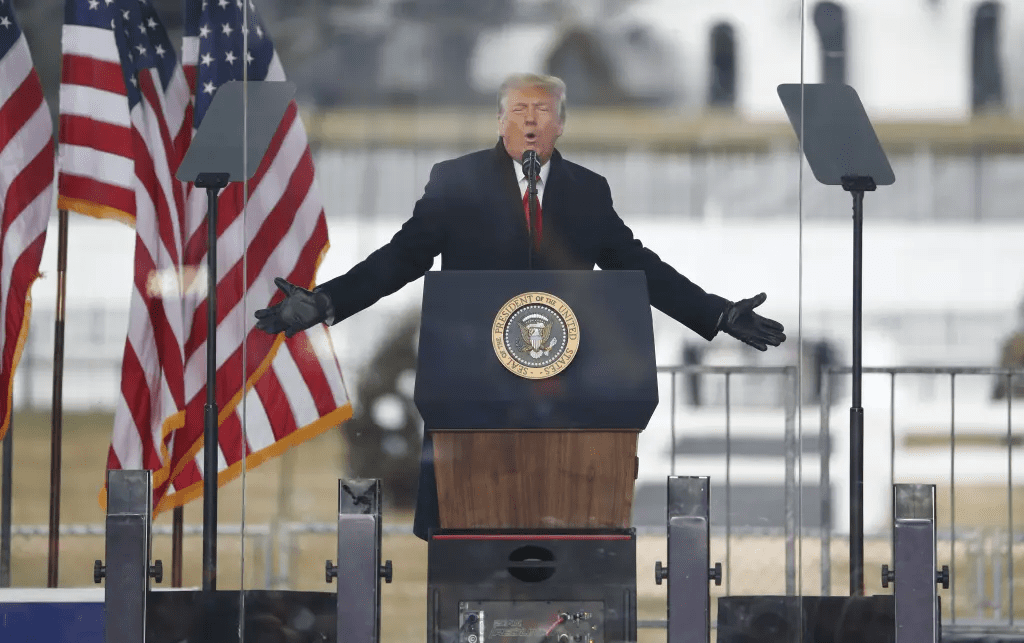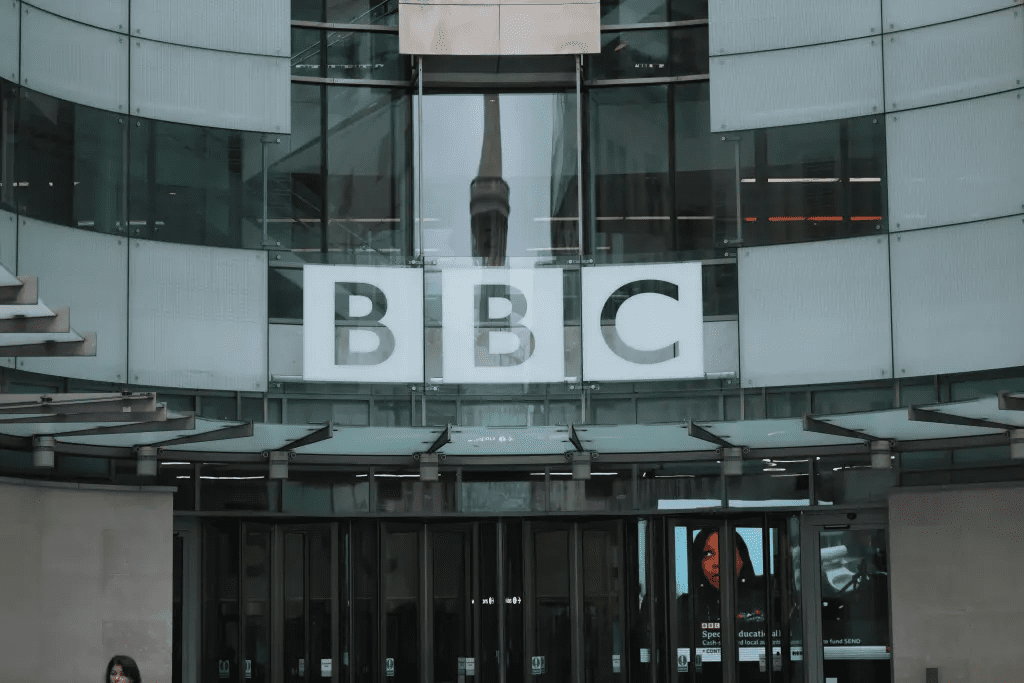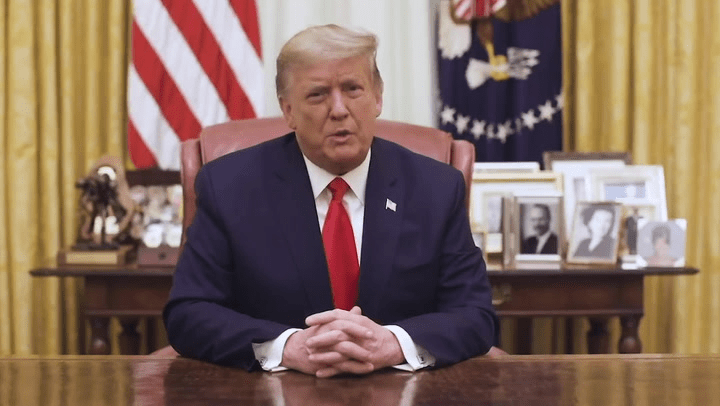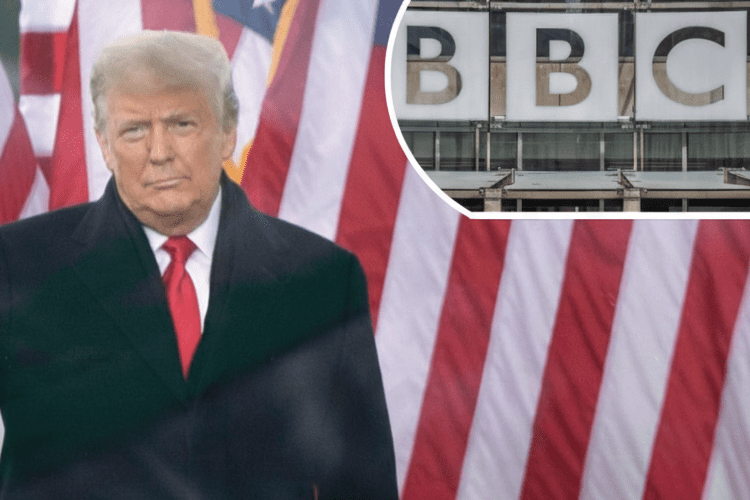How the BBC’s Documentary Spliced Together Donald Trump’s January 6 Speech — And Why the Corporation Must Apologise
In a turn of events that has shaken one of the world’s most respected broadcasting organisations, the BBC is reported to be on the brink of issuing a public apology after it emerged that a documentary aired on its flagship current-affairs strand appeared to present an edited version of Donald Trump’s speech on January 6, 2021. The documentary in question, titled Panorama: “Trump: A Second Chance?”, was transmitted in October 2024. According to a whistleblower dossier authored by former BBC adviser Michael Prescott, the broadcast merged separate parts of the speech into a single clip that suggested the then-President had explicitly called for his supporters to “walk down to the Capitol” and “fight like hell,” thereby allegedly inciting the riot at the U.S. Capitol.

Prescott’s 19-page memo accuses the BBC of “materially misleading viewers.” The letter states that crucial phrases in Trump’s speech were omitted — in particular the lines where he encouraged supporters to “peacefully and patriotically make your voices heard.” One passage reportedly included in the documentary combined three distinct parts of the speech into what appeared to be one unbroken sentence: “We’re gonna walk down to the Capitol and I’ll be there with you, and we fight. We fight like hell and if you don’t fight like hell you’re not gonna have a country any more.” In reality, those words were separated by significant time and context, and the documentary failed to note that the march to the Capitol had begun prior to Trump’s remarks.
This situation triggers not merely an internal media ethics debate at the BBC but invites wider questions about public trust, editorial oversight and how major broadcasters handle politically sensitive material. The BBC’s Chairman, Samir Shah, is expected to address the matter in testimony before Parliament’s Culture, Media and Sport Committee. The corporation has acknowledged that the chairman will “provide a full response … on Monday,” according to a spokesperson.
The timeline is critical. The documentary aired in October 2024, ahead of the U.S. presidential election. The alleged edits therefore took place in a moment when the public’s attention to electoral legitimacy, media reliability and the role of big-name broadcasters was especially intense. The whistleblower complaint alleges that senior executives at the BBC were aware of concerns as early as May but failed to act. On the U.S. side, the White House responded quickly, with press secretary Karoline Leavitt calling the broadcaster “100 % fake news” and a “propaganda machine.”

Within the BBC and broader UK media ecosystem the reaction has been swift and serious. Culture Secretary Lisa Nandy commented that decisions about “editorial standards … aren’t always well thought through” at the corporation and signalled concern about the wider implications for public trust in media institutions. Former politicians and media figures are calling for accountability, including possible resignation of key executives depending on how the corporation handles the fallout.
For viewers and media consumers this controversy strikes at the heart of what journalism is meant to represent: fairness, accuracy and context. The editing of the Trump speech clip raises fundamental questions: Is it acceptable to splice and reorder statements in a way that creates a materially different impression of what was said? Can a public broadcaster maintain its integrity if such practices occur? And what are the ramifications when the subject of the edit is one of the most polarising figures in global politics? The BBC’s critics argue that this instance is a textbook case of editorial bias and mis-representation. Supporters of the corporation caution that no broadcaster is perfect and that leaked memos may reflect internal dissent rather than broad institutional behaviour.

The impact of the episode is not confined to the BBC’s internal governance. As one of the largest and most visible media organisations globally, its credibility is tied to how well it addresses these allegations. The apology now reportedly forthcoming is a measure of how seriously the BBC treats its public mandate. At stake is the trust of an audience that frequently turns to the broadcaster for dependable news. In an age of algorithms, echo chambers and viral mis-information, the clarity and fairness of one speech edit might look trivial — but for many it signals something larger: the fragility of media trust in a polarised era.
For Donald Trump’s team, this is not merely vindication of any particular mis-quote. Rather, it is tying into a broader narrative of media bias and alleged mis-treatment of the former President by global press outlets. The United States has witnessed a steady erosion of trust in journalism, with both sides of the political spectrum accusing big media brands of distortion. The BBC’s stumble here deepens that narrative. From the U.S. side, the episode will be used as a rallying point: “If the BBC can do it, what else are you not seeing?” For the BBC, the question is whether it can rebuild confidence in its ethical standards before the damage becomes lasting.
There are long-term repercussions for journalism standards and regulatory oversight. In the U.K., the broadcasting regulator Ofcom may investigate whether the programme breached rules on accuracy and impartiality. The parliamentary committee will demand explanations not just about the Trump speech edit, but about broader questions raised in the whistleblower dossier — including alleged bias in the BBC’s Arabic-language services and internal gender-identity coverage. These wider issues raised by the memo suggest the current case may merely be the tip of a larger iceberg.
Ultimately, the BBC’s forthcoming apology is a pivotal moment. It may be read broadly as a demonstration of accountability or as an example of a media institution under pressure. How the BBC handles follow-up actions — internal reforms, transparency, possible management changes — will determine whether its reputation rebounds or continues to slide. Some media analysts argue change must run deeper than a public statement: a full external review, clearer editorial processes and renewed transparency commitments might be necessary. Others caution that the network’s foundational strengths remain intact and what is unfolding simply reflects tensions in modern journalism.
For consumers of news, the message is clear. Even trusted names in global journalism are not immune from criticism or error. But the difference lies in how they respond: with honesty, corrective action and willingness to learn. The BBC finds itself at a crossroads: either renew its reputation as a standard-bearer of impartial broadcast journalism or risk becoming sidelined in an environment where trust is the premium currency. One editorial mis-step on a major political speech might become back-lit as a defining moment — a test of whether the corporation places truth above narrative, accuracy above agenda, and public service above ego.
In the end, the edit of a 2021 speech may seem like small detail in a vast media ecosystem. Yet, for many, the way that clip was constructed, broadcast and defended will matter. Because in a world flooded with information, how we’re told what happened may matter as much as what actually did. The BBC now stands at the centre of that question, and its answer will resonate far beyond one docum


